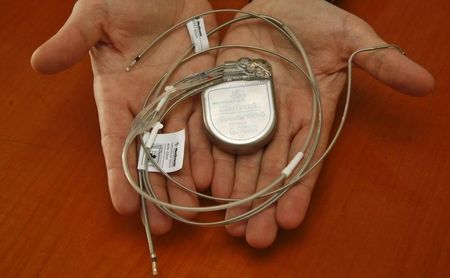By Susan Kelly
(Reuters) - Medtronic Inc (N:MDT) posted a quarterly profit that was in line with analyst expectations, helped by sales of new heart devices, and said its $42.9 billion (27 billion pound) acquisition of hospital products maker Covidien Plc (N:COV) remains on track to close early next year.
Second-quarter revenue rose 4 percent to $4.37 billion, propelled by newly launched products, including an implantable diagnostic monitor for the heart called Reveal and its CoreValve replacement heart valve that can be implanted in a less-invasive procedure than traditional open-heart surgery.
The largest stand-alone medical device maker on Tuesday said net earnings for the quarter ended Oct. 24 fell to $828 million, or 83 cents a share, from $902 million, or 89 cents a share, the year before.
Excluding costs related to the Covidien acquisition and a charitable donation, Medtronic earned 96 cents a share, in line with the average analyst forecast.
The Minneapolis-based maker of pacemakers and defibrillators, stents, spinal implants, insulin pumps and other products reiterated its outlook for fiscal 2015 profit of $4.00 to $4.10 a share, excluding special items, but raised the lower end of its projected range for revenue growth. It now expects revenue growth of 4 percent to 5 percent, adjusted for currency fluctuations.
On Monday, Medtronic and Dublin-based Covidien said their shareholders will vote on the buyout on Jan. 6.
New U.S. tax rules announced in September aimed at deterring tax inversion deals mean Medtronic will need to borrow more than it originally planned to finance the Covidien acquisition. It had planned to use overseas cash to fund the deal.
Although acquiring Covidien is expected to lower Medtronic's overall global tax burden slightly, the company has said the deal is primarily aimed at expanding its portfolio of products.

Medtronic in recent years has struggled with slowing growth and relentless price pressure in maturing markets for heart and spine devices, and analysts expect the acquisition to bolster its ability to bundle the products its sells to hospitals and expand its presence in fast-growing emerging markets.
(Reporting by Susan Kelly in Chicago; Editing by Chizu Nomiyama)
